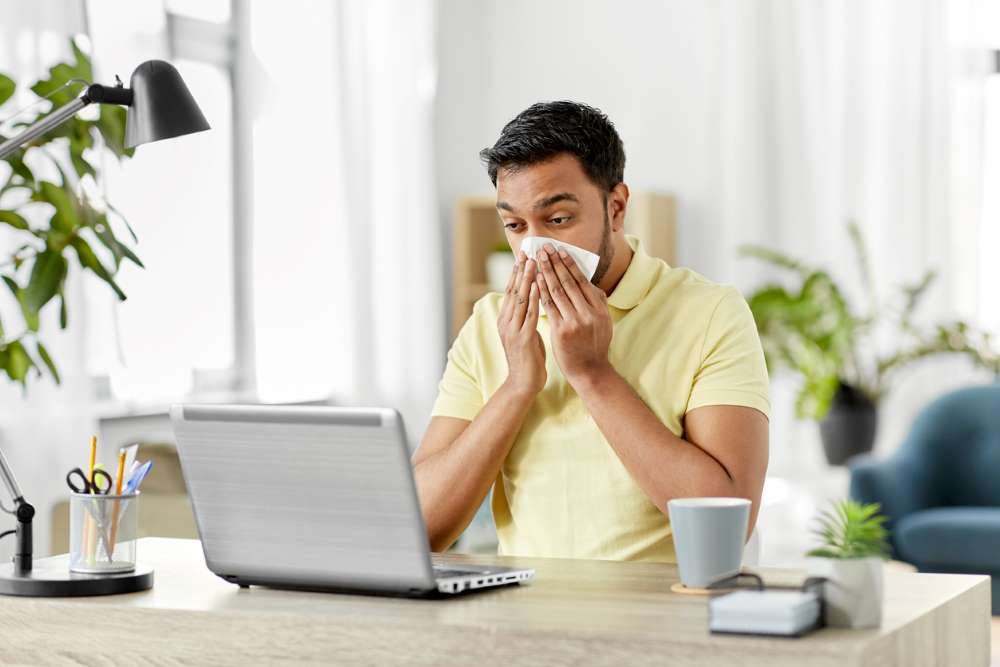
Humidity is not only bad for your family, but your home as well.
That pesky elevated moisture vapor in the air is not ideal beyond the 30-50 percent range. Beyond that humidity level, your body begins to struggle to regulate internal temperature and can actually make you sick as higher humidity is the perfect breeding ground for all kinds of fungus and mold. These conditions can especially be bad for people with breathing issues like asthma or allergies.
Bad for your home
Along with your lungs, your home itself doesn't do well with humidity for some of the same reasons; mildew can cause wood to begin to rot and warp which often results in expensive repairs. Humidity can also cause the paint to flake or curl wallpaper with too much excess moisture. Furniture close to outside walls can also become damp and moldy. Basements and crawl spaces are often susceptible to condensing moisture.
Bad for your body
However, sucking all the moisture from the air can be no better as dry air is uncomfortable and makes your skin feel dry and itchy. Same as too much humidity, a lack of humidity is hard on people who have breathing issues as the dry air can cause more coughing and wheezing. Low humidity levels also pose a danger to your home as it can shrink wood causing additional damage.
You may especially feel the effects of poor humidity during the night while trying to sleep; too much humidity your body struggles to evaporate sweat to cool off, too dry and your mucus membranes can dry out causing a sore throat.
The solution
So what can you do? For homes with too much humidity, the solution is clear; a dehumidifier!
Depending on how much moisture you need to extract from your home you may want to consider a larger or smaller unit, with the average device able to remove 50 pints per day (PPD).
For those with homes between 700 to 1,000 sq. ft. and feeling the effects of dampness 50 PPD would work well, you may need to get the right size to ensure its effectiveness. However, in a larger building between 1,500 to 2,500 sq. ft. may want to consider a unit able to pull 60 PPD. Likewise, those with a smaller space to dehumidify may want to consider a smaller device that pulls somewhere closer to 20 PPD.
However, if you live in a colder climate, you may want to consider a desiccant dehumidifier as traditional refrigerant dehumidifiers will have their coils freeze over.
Instead, a desiccant dehumidifier is fitted with a rotor filled with sheets with desiccant material. As the air is drawn in through a fan, it passes the rotor where the moisture is adsorbed. Desiccant dehumidifiers are also much quieter because they don’t have a compressor. They’re also more energy-efficient and effective at drying already dry air.
You may especially want to look into getting a dehumidifier for your home if someone in your family seems to have a never-ending runny nose, or your clothes have that moldy smell or feeling. The appearance of more spiders, moths or even cockroaches may also be a sign that you could benefit from a dehumidifier. Anyone whose allergies seem to be worse than normal may want to consider the humidity levels in the home. Or, it may be that a recent rainfall event has temporarily added unwanted excess moisture to the indoor environment and you may want to run the dehumidifier more often than normally is required. Excess condensation can also quickly become apparent after cooking, or taking a bath or shower. While bathroom mirrors are likely the first to steam up, that humidity can also get into walls, doors and wallpaper. Running the dehumidifier for a period of time after these activities might be the perfect solution to any potential buildup of moisture and help you avoid damage and expensive repairs in the long run.
Lower energy costs
While the health benefits are many, you may also want to consider the reduced energy costs associated with having the right balance of humidity in your home. As your dehumidifier takes the unwanted excess moisture from the air, your air conditioner doesn’t have to work as hard to maintain an ideal temperature. Going on your air conditioning means saving energy and the costs associated with running the air conditioner.
If you do decide a dehumidifier is the right choice for your home, you may want to consider a few factors like how loudly a unit runs, the maintenance and clean up, as well as price.



























